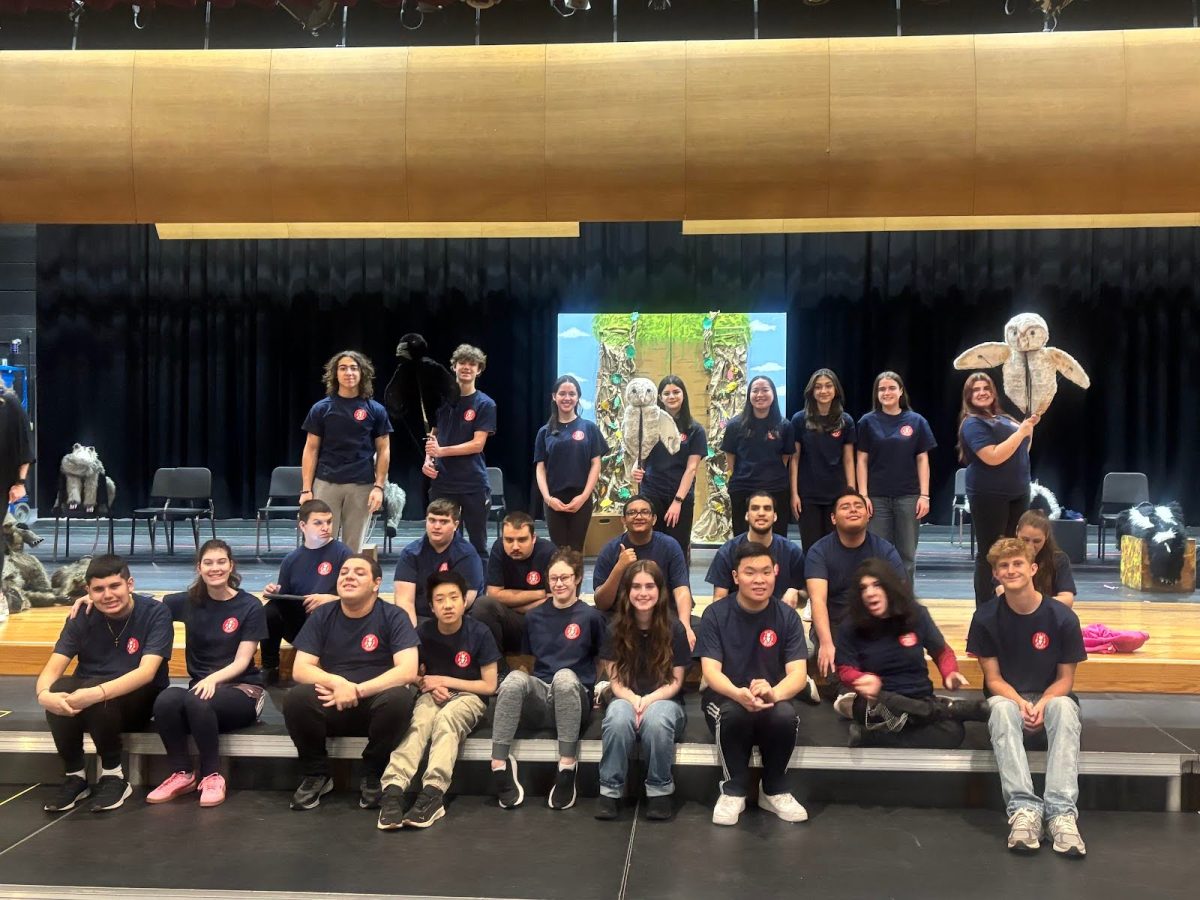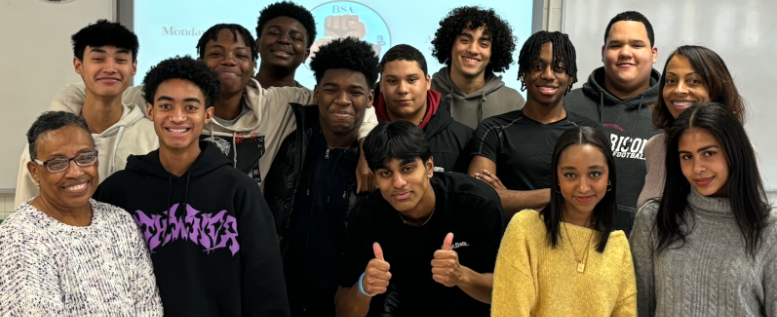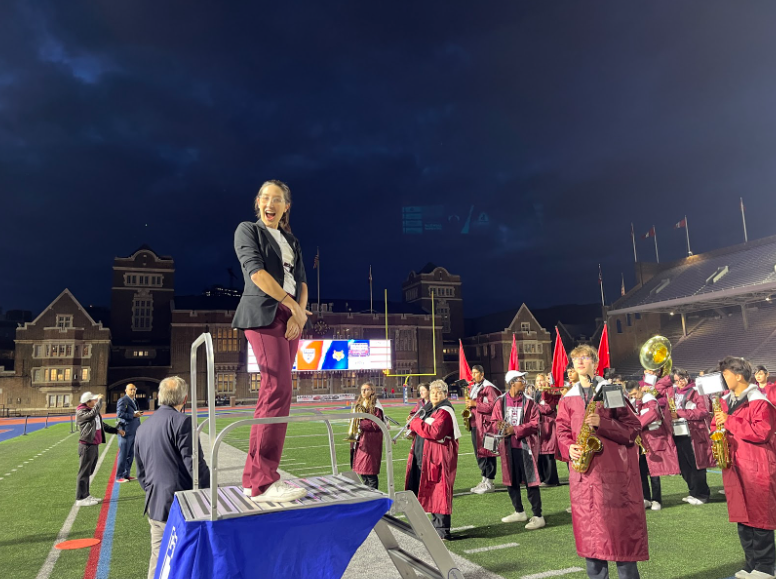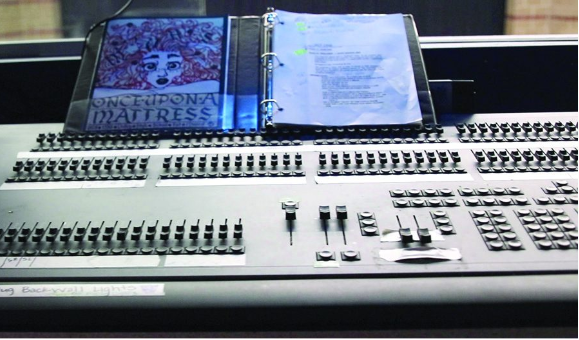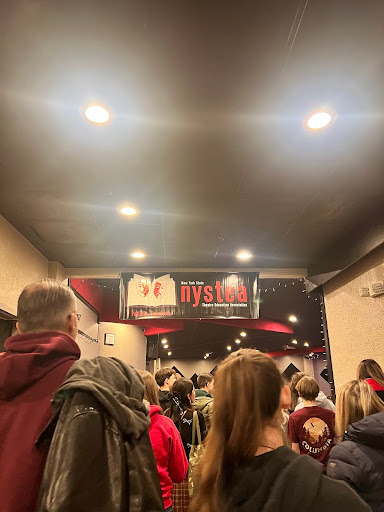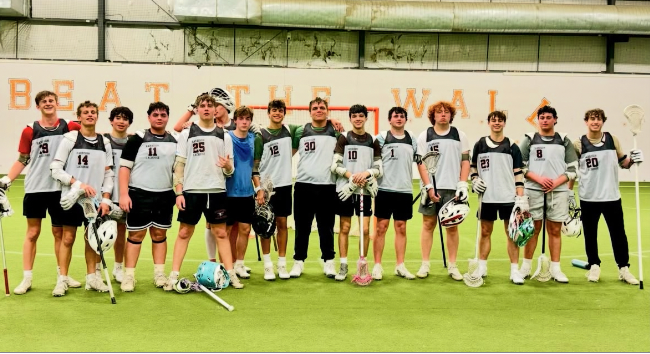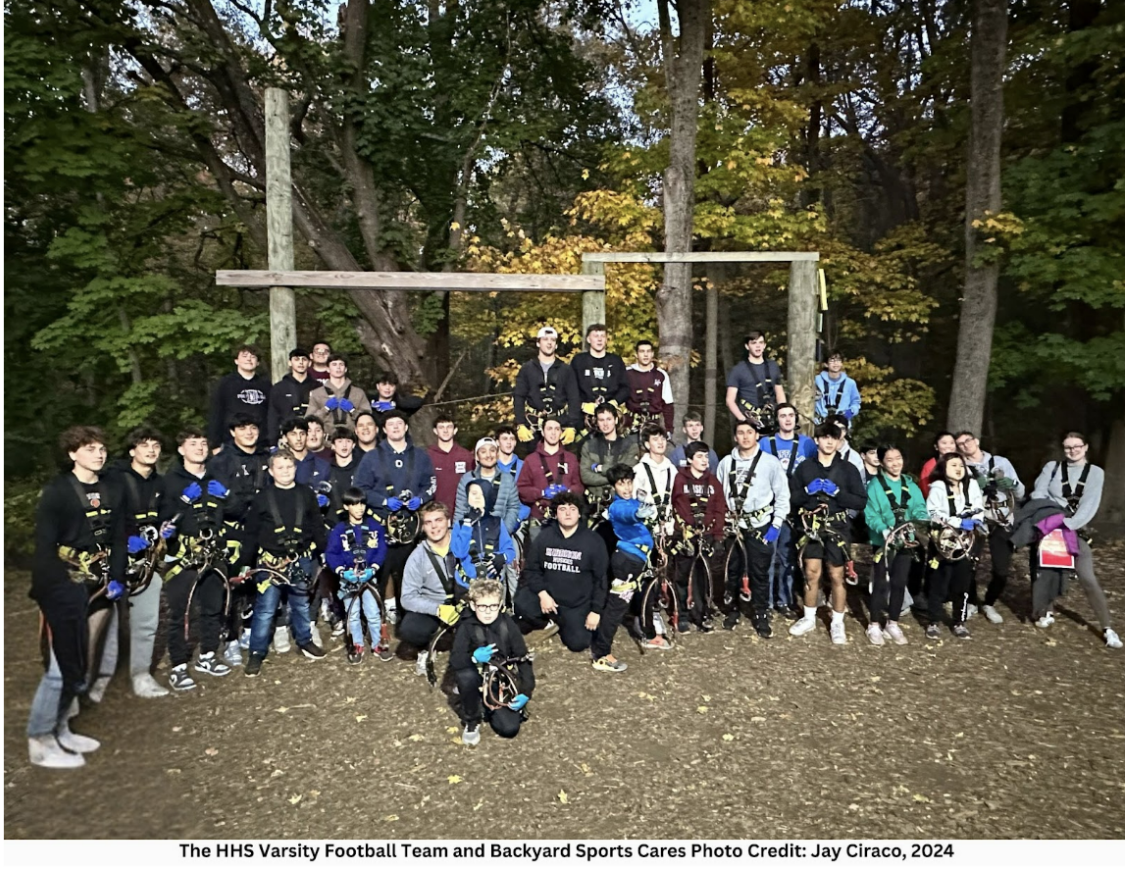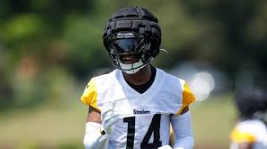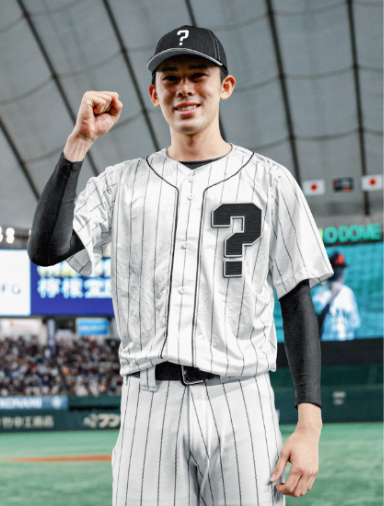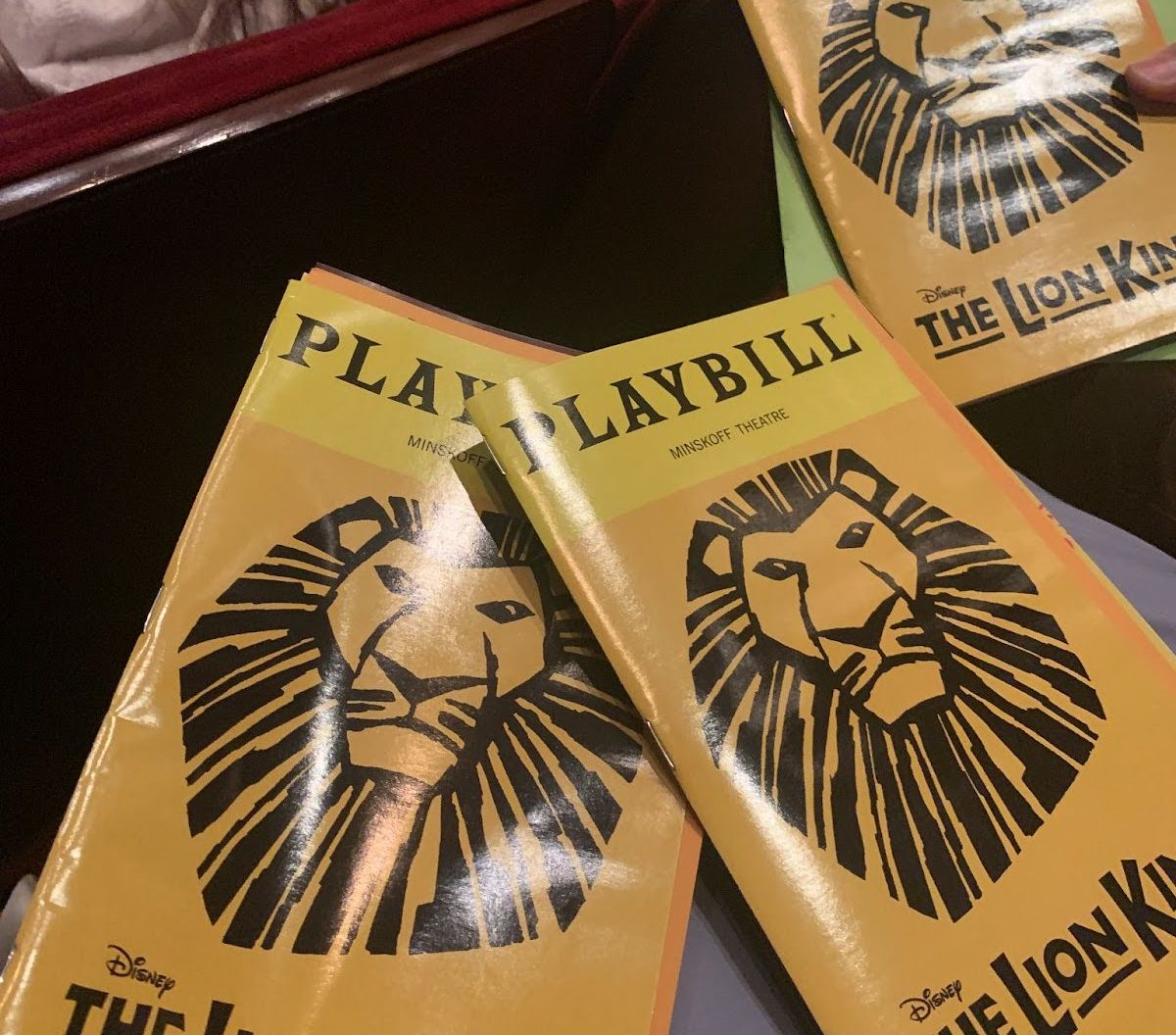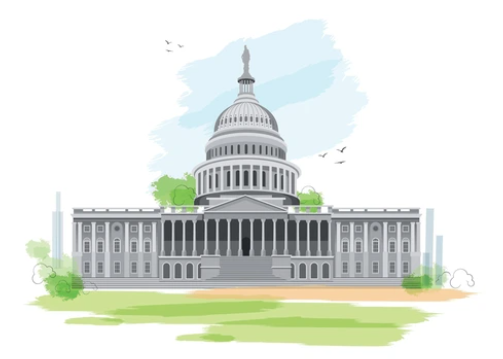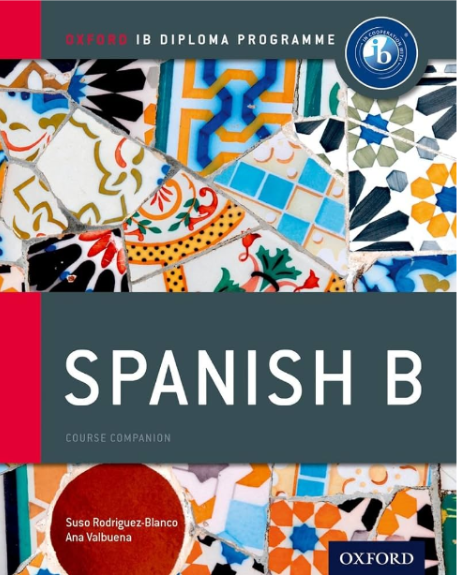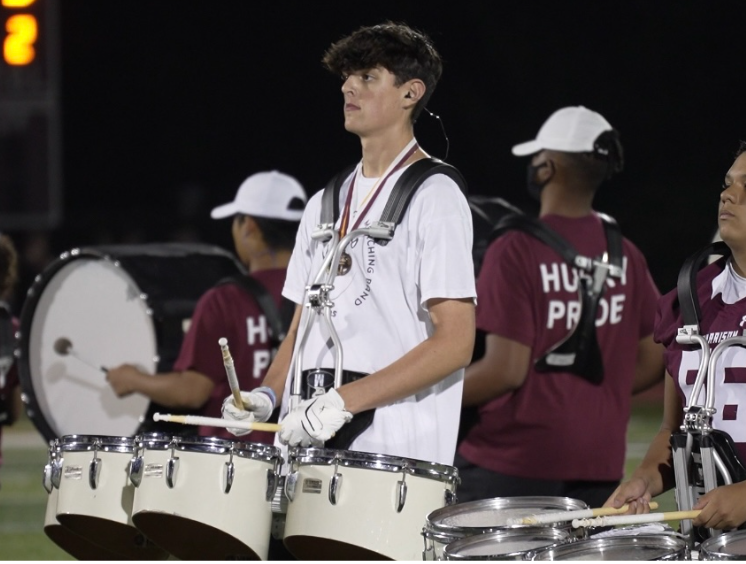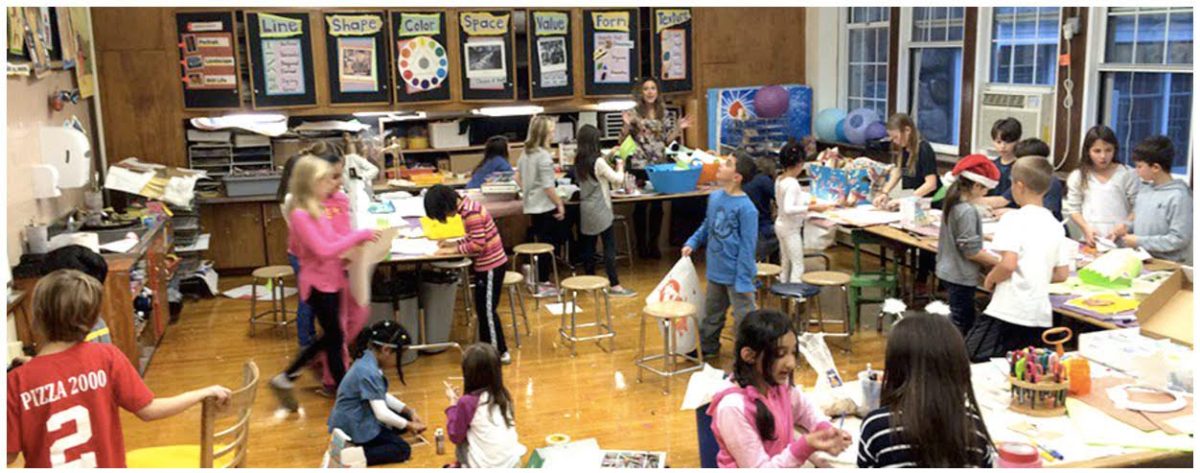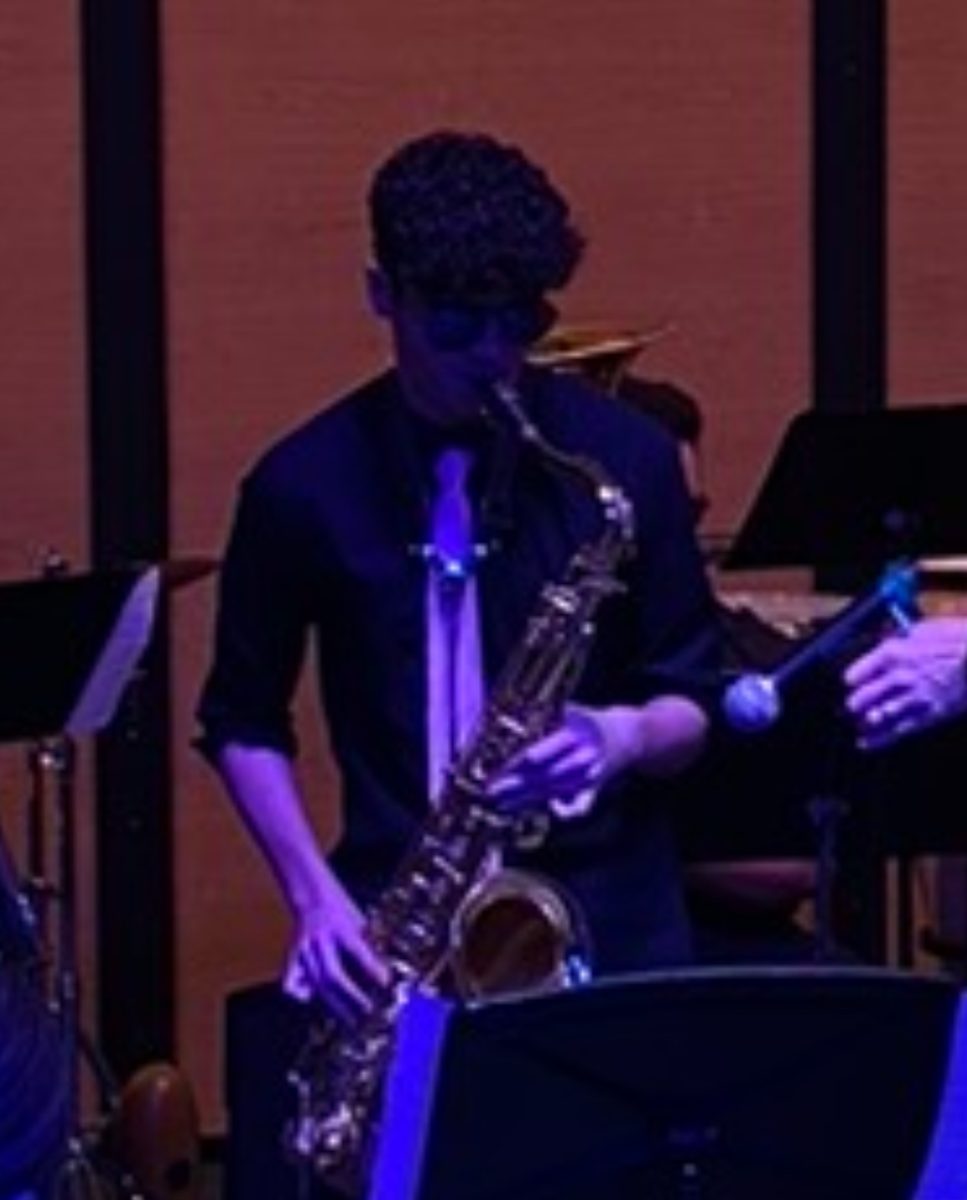Harrison’s FASE Program
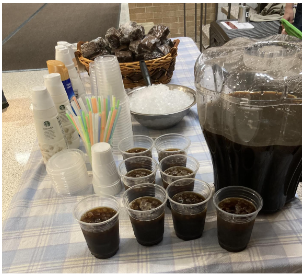
February 13, 2023
Special education, as it is known today in America, is a very new concept. The movement for special education in the U.S. began in the early 1930s as parents of children with special needs started to advocate for their children’s right to a proper education. Over the coming decades, the movement gradually picked up traction, and new legislation was passed with increasing importance, eventually, in 1973 and ‘75, the Rehabilitation Act and the Education for All Handicapped Children Act guaranteed and enforced the right of children with disabilities to free and appropriate public education (FAPE). Today these laws are exemplified locally in the Special Education Department here at Harrison High School, spearheaded by its fantastic teachers and administrators.
The life skills development program at Harrison known as FASE (Functional Academic Skills Education) is a major part of the special needs education provided at Harrison High School. Here students are taught how to accomplish tasks that are required in basic day-to-day life. This can mean a variety of different things for different students. Mrs. Pickel (pronounced pick-elle) has been teaching in the FASE subsection at Harrison High School for the past seven years and is a huge reason for its success. She commented, “I felt like the district had a lot to offer and I had a vision for what I wanted the program to look like which made it feel like a good fit for me. I’ve had nothing but good experiences here with support from administrators and support from my colleagues.”
Jennifer Toscano is the Director of Special Education & Support Services in Harrison. Mrs. Toscano was previously the Supervisor of Elementary Special Education for seven years and in her eighth year with the district, has stepped into the new position. “I have worked in a variety of other districts, I’ve worked in New York City. I think one of the things that makes our district unique is that if we say that we need something for a student and we justify why we need it, we get it. That’s pretty amazing, I’ve never worked in a place like that.” Similar to Mrs. Pickel, Mrs. Toscano has experience in a variety of different districts yet none have rivaled Harrison’s passion and support of our Special Education Department.
Mrs. Toscano shared some moments in her career that she thinks are a testament to her Department’s success. She said, “There are days where I’ve had parents of students who are in the FASE Program say ‘I never imagined that my child could attend a public school.’ I’ve had other parents where we’ve gotten to the point where a student has met all their goals, they’re achieving grade-level standards, and we’re able to declassify the student and they’re able to fly on their own with no additional support and that’s always one of the highlights of my day.”
Special needs is an extremely broad term. Different disorders and severities of disorders all grouped together under one umbrella term can mean that some students in the Special Education Department may have higher support needs while others can do skills more independently. Teachers have a challenging job; trying to impart information to students when each kid may learn so differently. This is amplified in special education by the additive fact that all the students have extremely different learning and functioning capabilities. She talked about the lesson her students were currently going through which was self-care and being at the gym. Things like working out to the best of your ability, showering, and changing. Putting on deodorant was an example given by Mrs. Pickel. While it is great if a student can reach these goals, Mrs. Pickel noted that “it matters more for each kid to have an individual goal for the lesson than the lesson itself.”
Along with the ideas above, Mrs. Pickel realizes that while teaching in front of a smart board has its uses, more experiential and hands-on learning in a special education classroom benefits her students more, “As much as we can, we’re creating lessons that everyone can partake in. There are different ways to reach each student in the same topic but at different levels.”
“Every time we have Cafe we have teachers who order coffee and kids who come and buy things.” Mrs. Pickel refers to “Cafe” but she doesn’t mean the student union, instead, she’s referring to the hands-on learning that involves FASE which takes place every other Friday. During the Cafe, FASE students go around the school handing out coffee to teachers who ordered it and also sell snacks and homemade brownies at the concession stand by the Senior Patio. “I’ve found that the school really embraces this whole program which I really love.” The every-other-week event precedes Mrs. Pickel’s time here at Harrison but she has seen it develop and grow into an amazing and fun learning experience for FASE students that the whole school knows and loves.
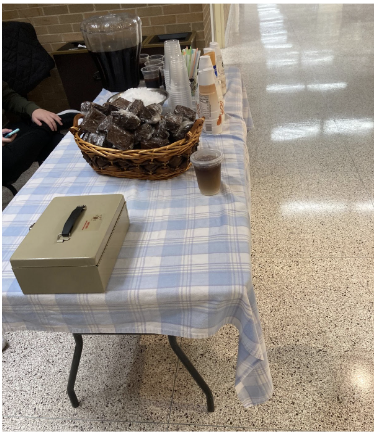
While it is an amazing subsection of the Special Needs Department, FASE does not make up its entirety. Mrs. Toscano pointed out that the co-teach unit of our schools is fantastic as well, “the co-teach program is something I am really, really proud of because as I have been here in the district, we’ve grown that program tremendously over the years. I know that from Dr. Wool on down to the special education teacher in the classroom that we’re really committed to that program and making sure that students have an inclusive environment to learn.” It is important to take note of the vast success that other areas of the Special Education Department have had.
Dr. Wool, our Superintendent of Schools, prides himself on the inclusivity of our district and not only from an ethnic or economic viewpoint. Dr. Wool said one of his proudest achievements is incorporating Harrison’s special needs children into our schools. Before he did this, more than one hundred special needs students received out-of-district schooling but because of his change, these kids now receive the education they deserve in their district, in their home. He told a story about one Summer when he had brought the FASE program back to Harrison Avenue Elementary School. He was driving past the school when he noticed a young mother at the playground, sitting on a bench crying. He stopped and went over to the mother asking her if she was ok. She responded by telling Dr. Wool that for the first time ever, her daughter, who was just on the playground, was asked what her name was by another child her age. This tiny little gesture brought the mother to tears because the idea of being seen and being with other children your age, treated as an equal and not as a specimen is extremely important to the well-being and development of any child, let alone one with special needs. Dr. Wool believes that Harrison’s inclusivity and treatment of our special needs peers and the experience and skill of its teachers is the greatest strength of the Special Needs Department at Harrison. Mrs. Toscano added, “Just our program being here in the district speaks volumes. These are students and children who live in our community. Why should they go to school anywhere else if we can do it here and we can do it better?”

